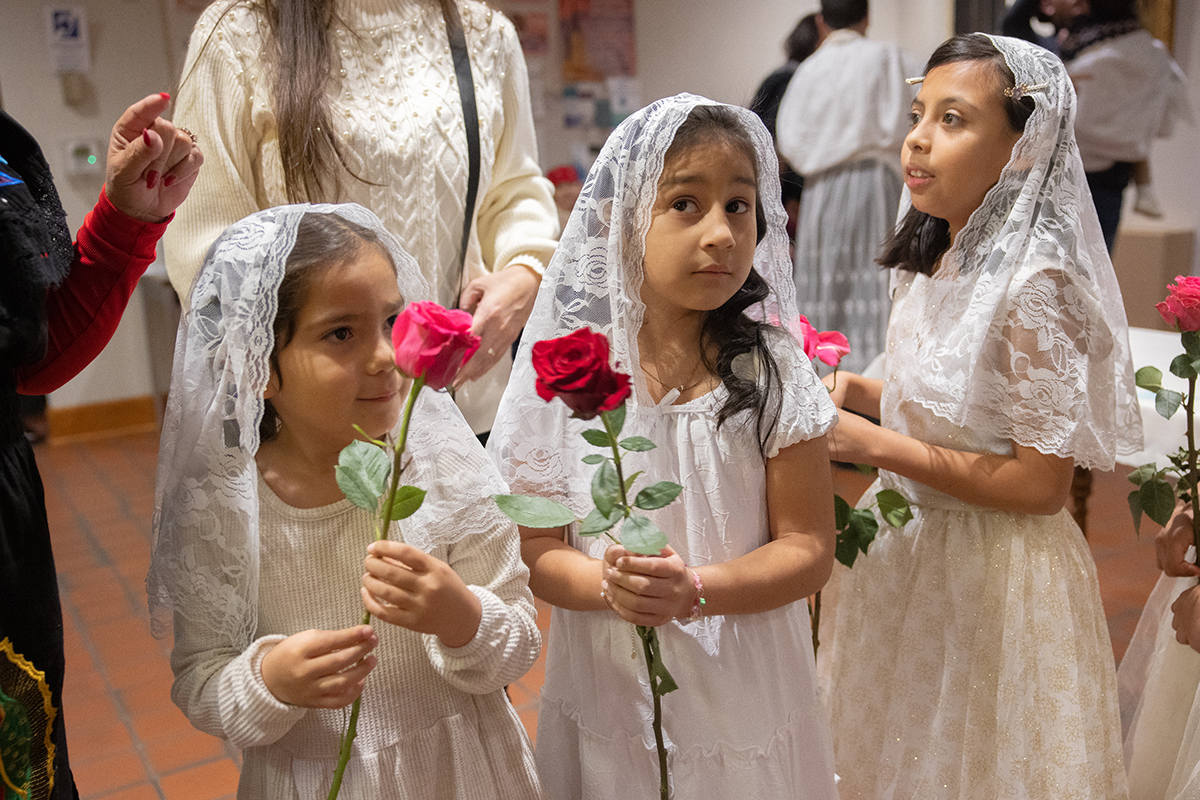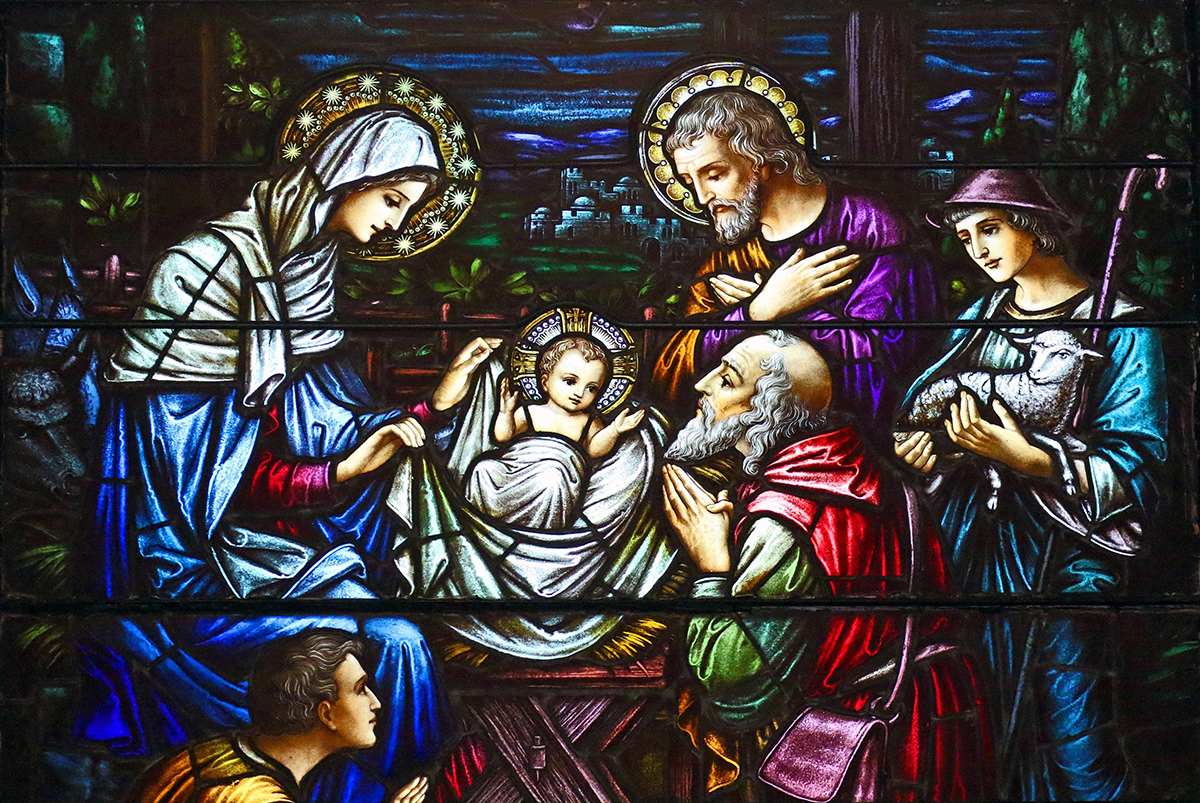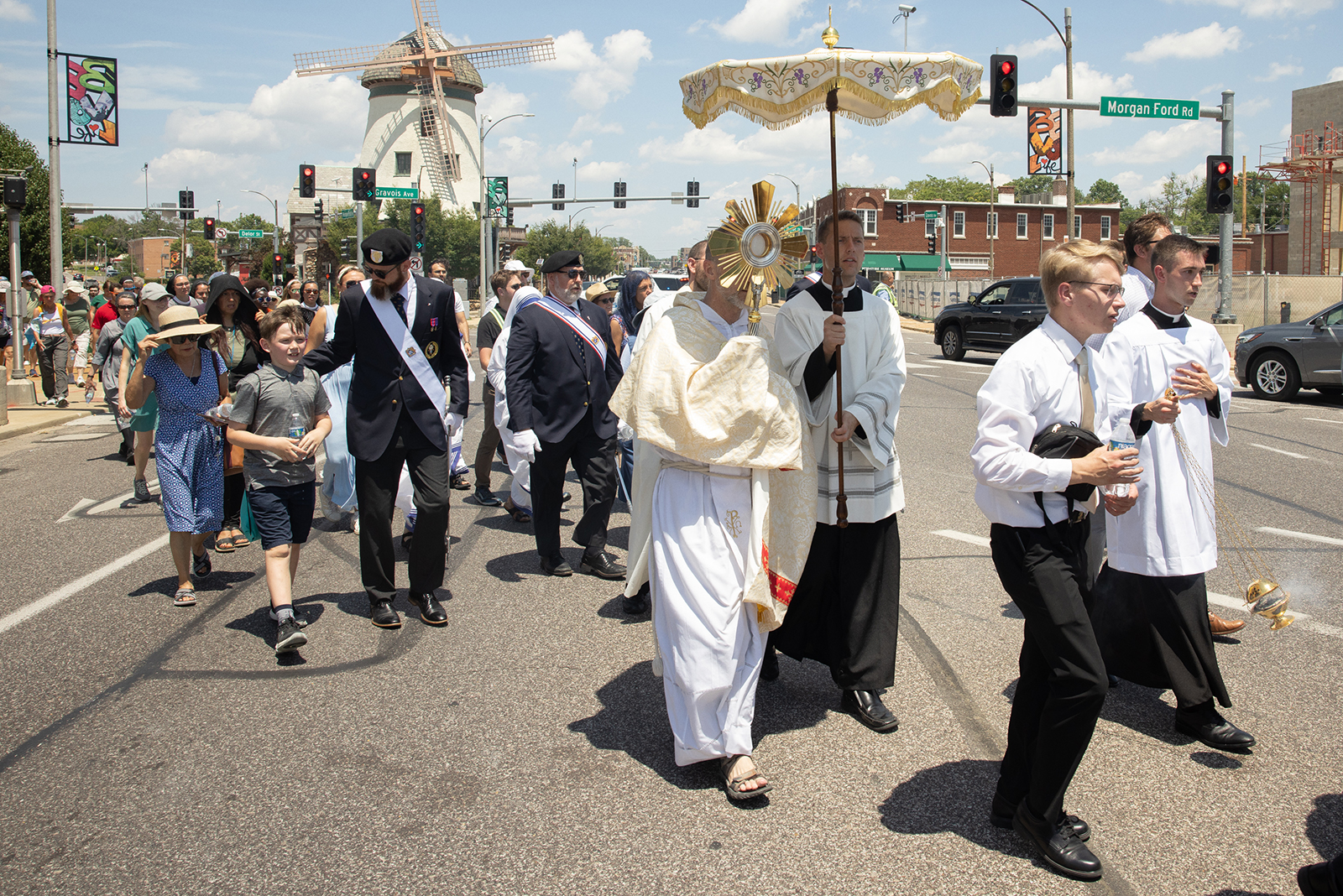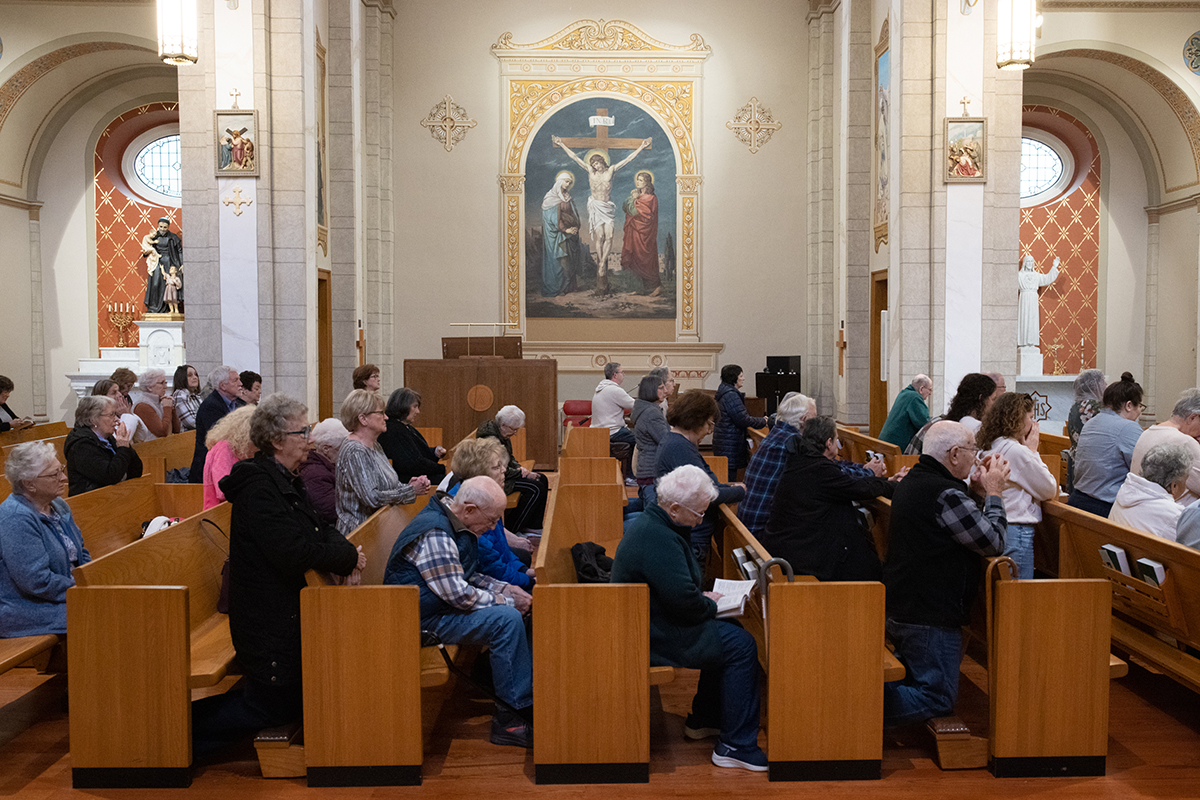Catholics mark Migration Week with welcoming spirit
Calls for solidarity counter fears, policy changes
Government actions and rhetoric raising fears about immigration and refugee resettlement were countered by Catholics who celebrated National Migration Week Jan. 7-13 by calling for a more welcoming spirit.
Pope Francis, in an address Jan. 8 to diplomats accredited to the Vatican, warned against talking about migrants and migration “only for the sake of stirring up primal fears.” The movements of peoples have always existed, and the freedom of movement — to leave one’s homeland and to return — is a fundamental human right, he said.
The United States has seen a number of moves, including steps to end Temporary Protected Status given for people from several countries. Congress created TPS in 1990 to shield immigrants from deportation if their countries were deemed too unstable or unsafe to receive them because of natural disasters or armed conflicts.
In November, the Department of Human Services ended TPS for 60,000 Haitians who arrived after the 2010 earthquake, giving them an 18-month period to leave. Same with Nicaraguans and Hondurans. On Jan. 8, it announced the impending end for 200,000 Salvadorans who have been living in the U.S. since at least 2001.
The Deferred Action for Childhood Arrivals (DACA) program also faces the gauntlet. DACA allowed undocumented immigrants who came to the U.S. as children to remain in the country.
In late October, President Donald Trump lifted a temporary ban on most refugee admissions, but the number of refugees admitted to the country plummeted due to new rules for tougher vetting of applicants. In September, the president cut the annual limit on the number of refugees who can come to the United States from 110,000 to 45,000. In November, according to the U.S. Department of State, 1,860 refugees came to the United States compared to 8,355 the previous year.
Hilda and Kirk Bromley volunteer with the Immigrant and Refugee Ministry at St. Pius V Parish in south St. Louis, which welcomes, assists and advocates for refugees and immigrants who are settling in the neighborhoods around the parish and elsewhere. Some of them are integral members of the parish and are part of an outreach to other people in need in St. Louis.
Hilda Bromley came to the United States after meeting her husband, an American citizen who served in the Peace Corps in her native Ghana. “The whole world is moving,” she said. “When you think about history, who really stays in the same place? Everyone in this country, except the American Indians, comes from someplace else.”
Her husband noted that “at sometime in our lives, each one of needs help. … In America we have this ethos that self-reliance is so important and we can’t be a burden on someone else, but if we’re truly honest there are times when we need that grace of getting help from outside. It’s part of our faith. Jesus was a refugee in Egypt.”
Americans tend to be insulated from the everyday problems in the rest of the world, he said. He tells of a neighbor’s child where they stayed in a visit to Ghana a few years ago. The boy studied very hard, up late at night for several nights, for an exam to go to secondary school where there are limited placements. He became ill from an ailment that would be treated easily in the United States and went to a hospital where a doctor wouldn’t be visiting for three or four days. He died after two days. “Such a waste. He became completely dehydrated and died. It didn’t have to be,” Kirk Bromley said.
“We should thank God for our blessings,” he said, “but we should be aware that except for the grace of God, we could be there. On our doorsteps are immigrants and refugees. It is very healthy for us to open our doors to them. This is a spiritual opportunity for us.”
Father Paul J. Niemann, pastor of St. Pius V Parish, wrote Jan. 7 that “people seem to have been immigrants more than they have been settled in a given place. Today’s natives of any country are the descendants of the immigrants of previous generations. We ask the family of Jesus, Mary and Joseph to keep in our minds and hearts the needs of immigrants and refugees. As we receive them, we receive Christ.”
Father Matt O’Toole, pastor of St. Margaret of Scotland Parish, wrote in his parish bulletin on Epiphany about National Migration Week. “Each of our families have a migration story, some recent and others in the distant past. Regardless of where we came from, we remain part of the human family, children of the same God, and are called to live in solidarity with one another,” he wrote.
He noted that certain immigrants come to the United States undocumented due to barriers of the U.S. immigration system. There is “an enormous wait or ‘visa backlog’ that prevents them from reunifying with family members currently living in the United States in a timely fashion. Depending on the country of origin, some family members might have to wait for more than a decade before their visa is processed and for family reunification to occur,” Father O’Toole explained.
Peter Fisher Hesed, pastoral associate at the parish, also tells about the journey that took the Christ Child with His family to a haven of safety in Egypt, calling it the “flight of the refugee, a migration that is repeated by the millions every year.”
Hesed reflected on the words of Pope Francis in an address in August: “Every stranger who knocks at our door is an opportunity for an encounter with Jesus Christ, who identifies with the welcomed and rejected strangers of every age.”
The pope calls people to stand in solidarity with every person forced to leave their homeland in search of a better future, Hesed stated. “The four verbs that recur in the Holy Father’s teaching are: to welcome, to protect, to promote and to integrate. His efforts extend to many areas of national policies, actions taken by every possible sponsor organization, the upholding of human dignity in the treatment, accommodations and opportunities that we must extend to those who seek asylum,” Hesed stated.
Welcome the stranger
Welcoming the stranger, the immigrant, and the refugee have been long-standing hallmarks of the American way of life and religious convictions, Archbishop Robert J. Carlson wrote in a statement in September in response to the Trump administration’s plans to phase out Deferred Action for Childhood Arrivals (DACA) program.
DACA is an Obama-era program that allowed undocumented immigrants who came to the U.S. as children to remain in the country. Eliminating DACA could lead to the deportations of as many as 800,000 young adults.
“The responsibility to welcome and care for the migrant and refugee are not only public and social virtues, but also find common ground and resolve in faith: ‘Come you that are blessed by my Father … for I was hungry and you gave me food, I was thirsty and you gave me something to drink, I was a stranger and you welcomed me’ (Matthew 25: 34-35),” Archbishop Carlson wrote. “This Gospel mandate to actively reach out and welcome the stranger has guided our Catholic social values and practices for centuries. Throughout our Catholic tradition, we have learned to be attentive to the needs of the poor, the marginalized and the vulnerable. In faith, we have come to recognize and know the face of Christ in the migrant and refugee.”
The Archdiocese of St. Louis, he added, “will continue to be a place of welcome, service, and mutual hospitality, especially to the suffering and most vulnerable among us.”
ICE Accompaniment Project
Two opportunities are being offered for people who want to accompany migrants making routine check-ins at the Immigration and Customs Enforcement office.
Seven entities of the Archdiocese of St. Louis are among the sponsors of the ICE Accompaniment Project training, to be held from 6:30 to 8 p.m. Wednesday, Jan. 31, at Holy Trinity Parish, 3500 St. Luke Lane in St. Ann and again from 6:30 to 8 p.m. Tuesday, Feb. 6, at St. Cletus Parish, 2705 Zumbehl Road in St. Charles.
Across the country, there have been several cases of migrants being detained after going for a routine check-in at the Immigration and Customs Enforcement (ICE) offices, according to the sponsors of the training. “Family members are literally disappearing without being allowed to inform their friends or relatives, creating panic among their loved ones, destroying families and devastating our communities,” stated Marie Kenyon, director of the Peace and Justice Commission of the archdiocese.
In some cities, Kenyon added, a successful tool to protect against the threat to due process has been to accompany individuals to these check-ins. “By volunteering to accompany migrants to ICE check-ins, we are able to show solidarity and perhaps, in a small way, help to ease the anxiety of interacting with the legal system, reducing the likelihood of detention with our presence, and keeping relatives and/or lawyers informed in case the individual is detained. This is a huge help to efforts to end detention and deportation,” she stated.
For more information, contact Marie Kenyon, at (314) 792-7062 or mariekenyon@archstl.org.
>> Lenten reflection
“Walk the Journey with Jesus: A Series of Lenten Reflections on Migration” will be held from 6:30-8:30 p.m. Wednesday, Feb. 29 and March 7, 14 and 21, at the Cardinal Rigali Center, 20 Archbishop May Drive in Shrewsbury.
The reflections will include information on the historical context of Latin American immigration to the United States, the current state of U.S. border and immigration policy and the local impacts of these policies. The story of immigrant families will relate to the story of Jesus’ journey and how human dignity and faith calls people to respond.
The course will be led by Sara John, program coordinator of the St. Louis Inter-Faith Committee on Latin America and a parishioner at Most Sacred Heart in Eureka.
Government actions and rhetoric raising fears about immigration and refugee resettlement were countered by Catholics who celebrated National Migration Week Jan. 7-13 by calling for a more welcoming spirit. Pope … Catholics mark Migration Week with welcoming spirit
Subscribe to Read All St. Louis Review Stories
All readers receive 5 stories to read free per month. After that, readers will need to be logged in.
If you are currently receive the St. Louis Review at your home or office, please send your name and address (and subscriber id if you know it) to subscriptions@stlouisreview.com to get your login information.
If you are not currently a subscriber to the St. Louis Review, please contact subscriptions@stlouisreview.com for information on how to subscribe.





